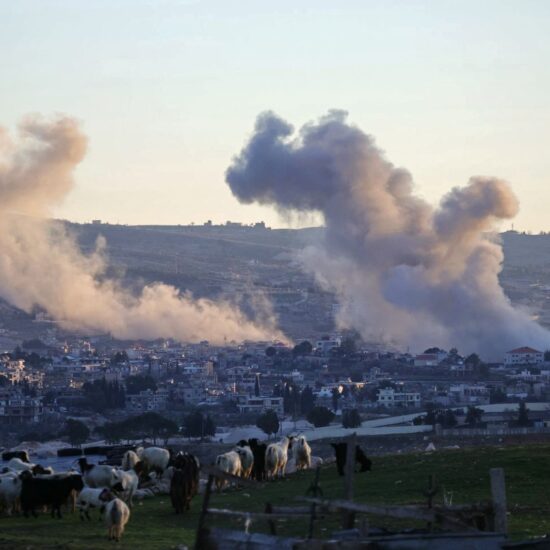
The recent European elections have marked a significant shift towards right-wing politics across the continent. This shift is expected to influence EU policies across the board, from supporting wars and supplying weapons, such as in the Russian-Ukrainian conflict, to other wars and conflicts globally. Additionally, we anticipate significant changes in immigration policies, addressing the influx of migrants—both legal and illegal—stemming from ongoing conflicts, particularly in the Middle East. In this article, I attempt to explore the potential impacts of the EU’s rightward shift on Lebanon, the Syrian refugee crisis, and the Assad regime in Syria.
The European Elections: A Shift to the Right
In the latest European elections, far-right parties made substantial gains, reflecting growing public support for conservative policies focused on national sovereignty, strict immigration controls, and security. Here are some notable outcomes:
France: Marine Le Pen’s National Rally achieved its best-ever result in a nationwide vote, winning 31.5% of the vote. This significant victory prompted President Emmanuel Macron to dissolve the French parliament and call for new national elections.
Germany: The far-right Alternative for Germany (AfD) secured a historic second place, surpassing Chancellor Olaf Scholz’s Social Democratic Party (SPD). This outcome highlighted the growing appeal of nationalist and anti-immigration rhetoric among German voters.
Other EU Countries: Similar trends were observed across Europe, with right-wing parties making gains in countries such as Italy, Sweden, and Hungary. In Italy, the Brothers of Italy party, led by Giorgia Meloni, saw increased support. In Sweden, the Sweden Democrats continued to consolidate their position as a major political force.
These results reshaped the political landscape of the European Union, emphasizing a shift towards policies that prioritize national interests, stricter immigration controls, and enhanced security measures.
Potential EU Policy Changes Towards the Middle East
Reestablishment of Relationships with the Assad Regime:
Right-wing parties are known for their pragmatic approach to foreign policy. Reestablishing diplomatic ties with the Assad regime could be seen as a means to stabilize Syria and curb the flow of refugees into Europe. This pragmatic approach prioritizes security and stability over ideological commitments to democratic values and human rights.
Engaging with the Assad regime could enhance counterterrorism efforts. The EU might see cooperation with Assad as crucial to combating extremist groups in the region, thereby bolstering European security.
Increased Aid to Lebanon:
Right-wing governments may prefer to increase financial aid to Lebanon to manage the Syrian refugee population more effectively. This strategy aims to improve conditions for refugees within Lebanon, thereby reducing the number seeking asylum in Europe.
Enhanced aid could also target Lebanese communities hosting refugees, addressing social tensions and improving infrastructure, healthcare, and education. This would help stabilize Lebanon and support its capacity to manage the refugee crisis long-term.
Impacts on Lebanon and Syria
- Lebanon:
Increased EU aid could provide much-needed support to Lebanon’s strained economy and public services, which are under pressure from hosting a large number of Syrian refugees. This aid could enhance infrastructure and social services, benefiting both refugees and local communities. However, right-wing governments, being pragmatic, might negotiate with the strongest parties. This approach, while potentially stabilizing the political and economic landscape, could mean stronger power for already influential groups such as Hezbollah. Europe may prefer to work with powers that can deliver results rather than parties that dream of democracy but have failed to deliver any change over the past two decades. This can be problematic for all reformists and might lead to stronger constraints on freedom.
Lebanon’s political landscape might also be influenced by EU policies. Greater support from the EU could bolster the Lebanese government’s ability to manage domestic and regional challenges, potentially stabilizing the political situation. However, this pragmatic engagement could also consolidate the power of dominant political factions, complicating efforts for democratic reforms and broader freedoms.
- Syria:
Reestablishing ties with the Assad regime could inadvertently legitimize Assad’s rule, despite his controversial human rights record. This shift in international approach might prioritize stability and reconstruction over democratic reforms. However, we do not know how absolving the Assad regime of its crimes might influence internal Syrian dynamics. Key questions remain: Will opposition groups be given any opportunity to return, or are they doomed to live in asylum until further changes occur? Even if Assad issued protections for his opposition, would they feel safe returning to an authoritarian regime? This approach sends a concerning message to people aspiring for freedom, potentially sidelining humanitarian issues and democratic aspirations. Consequently, this strategy might face criticism from human rights advocates and pro-democracy groups, but such criticism might have little or no real influence on the situation.
In conclusion, this shift towards right-wing politics in the EU is likely to bring about significant changes in its foreign policy towards the Middle East, particularly concerning Lebanon and Syria. While these policies might enhance stability and security from a European perspective, they also carry implications for human rights and democratic values in the region.
Ramzi Abou Ismail is a political psychologist and researcher at the University of Kent.
The views in this story reflect those of the author alone and do not necessarily reflect the beliefs of NOW.








